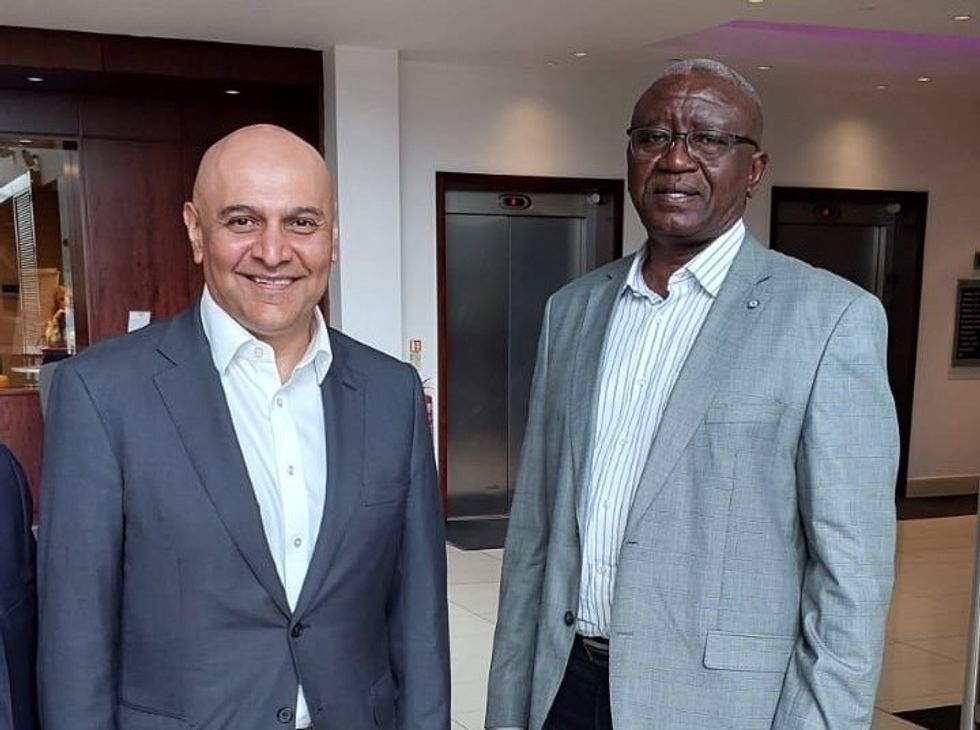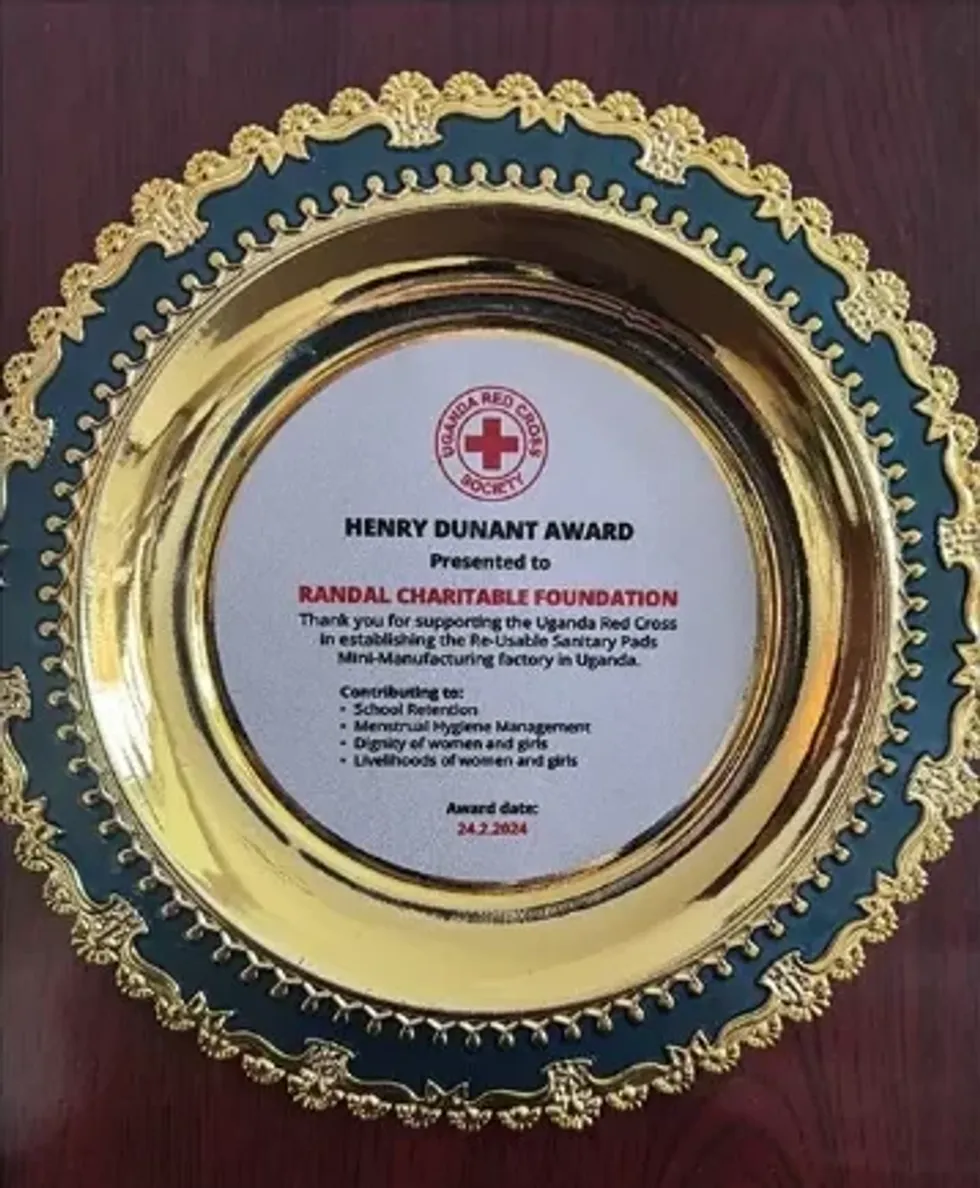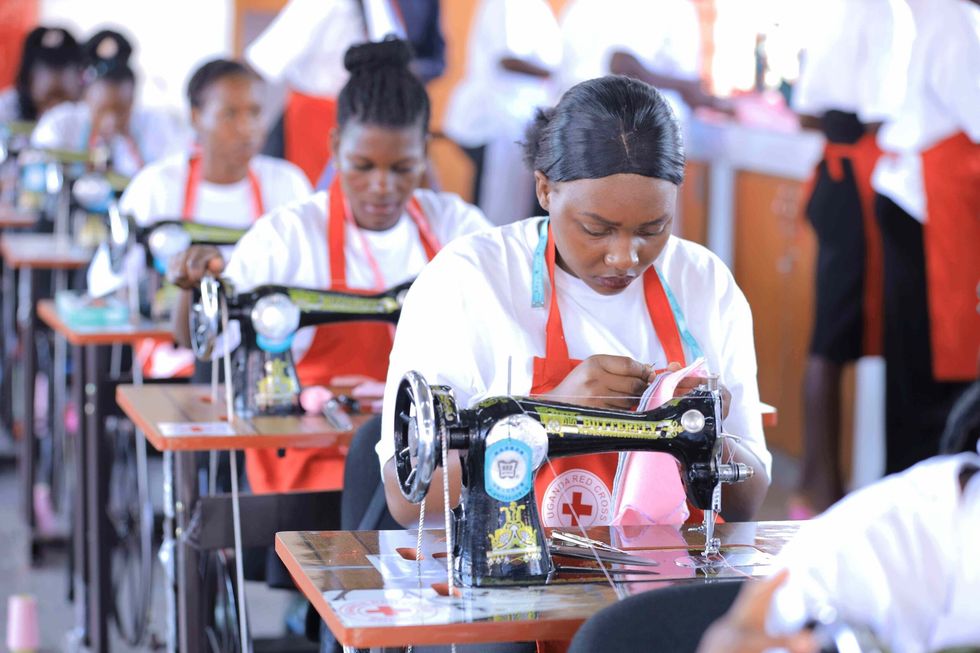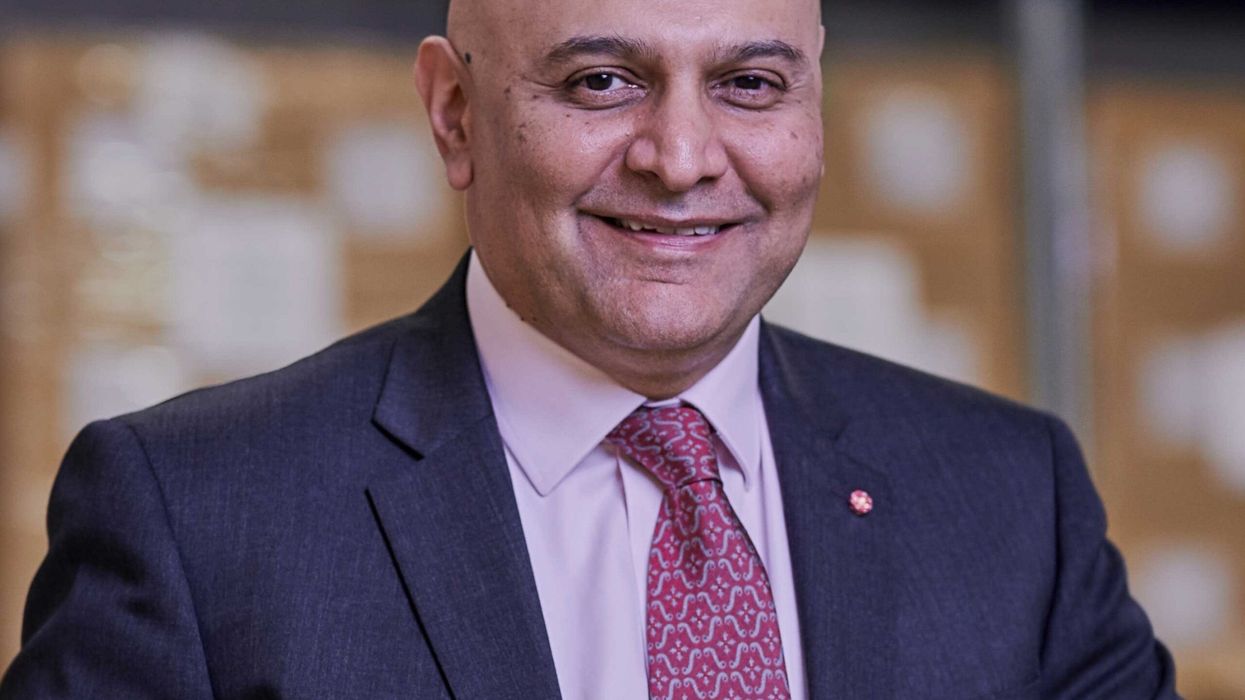Dr NIK KOTECHA OBE DL, the Chairman of the Leicestershire-based Randal Charitable Foundation foundation, has received the Henry Dunant Award from the Uganda Red Cross Society (URCS).
Dr Kotecha was invited to receive this year’s award because of the collaborative work between the society and the Randal Charitable Foundation to open a manufacturing plant for sanitary pads in Uganda. This plant, through its operation of producing affordable reusable sanitary pads, will significantly improve the lives of up to 50,000 Ugandan girls and women each year.
The plant was officially opened in the summer of 2023 by Dr Kotecha and is now working towards its goal of manufacturing 100,000 re-usable sanitary pads annually – directly helping to tackle missed educational opportunities for girls, who may miss 18% of the academic year, because of poor sanitary protection during their menstrual periods. It is also creating locally based, skilled employment opportunities for vulnerable girls and women who are being trained to make and market the pads and ensure the long-term sustainability of the facility.

Speaking virtually at the Uganda Red Cross Society’s National Council Meeting (General Assembly) in Kampala, Dr Kotecha, said: “Thank you very much for this award. It is a privilege to receive this on behalf of our Foundation. Many of you will know that Uganda was my birthplace and my home as a child. A place that I have been to many times, and of which I’ve got some very fond memories.
“Especially the time when I visited last year to open this incredible manufacturing facility, which I’m very humbled to have had the opportunity to collaborate with the Uganda Red Cross to create.”
“It’s amazing how life comes together – it was over 50 years ago in 1972 when my family left Uganda during the time of Idi Amin, and it was the Red Cross that helped and supported us to leave, settle and start a new life in the United Kingdom.

“So, it’s an honour to be presented with this award and to support the Uganda Red Cross Society to save and significantly improve the lives of so many girls and young women.”
Named after the founder of the International Red Cross, the award acknowledges and rewards outstanding humanitarian services and actions by an individual, and is the highest award given by the Uganda Red Cross Society each year.
During the ceremony, Robert Kwesiga, Uganda Red Cross Secretary General, read a Citation to the members of the National Council (General Assembly). He said: “We are pleased to present the Henry Dunant Award to Dr Kotecha, for his outstanding contribution towards the establishment of the Uganda Red Cross Reusable Pads Manufacturing plant, at our Youth Training Centre in Namakwa, Mukono.
“This project is helping us to improve and touch lives, especially vulnerable girls in rural communities. The Pads are a point of regaining dignity of the girls who drop out of school due to lack of Pads. The same project is contributing to the economic welfare of girls and women in the communities who sew the Pads and find this as a point of psychosocial support for their emotional and mental wellbeing.”
“This is the noblest award we give in the Red Cross, and we are excited to present it to Dr Nik Kotecha, for his outstanding contribution towards the National Society development.”

The award was accepted on Dr Kotecha’s behalf at the National Council Meeting by Business and Investment Ambassador, Grace Muliisa, who is also the Managing Director of EcoBank Uganda.
Rachael McCormack, Chief Operating Officer of the Randal Foundation, added: “We were delighted to be invited to join the National Council Meeting 2024 for the Uganda Red Cross Society, marking 60 years of celebrating humanity in Uganda – at their meeting in Kampala.
“Presenters spoke of how the work of the society has been hugely supported by partners to enable them to go further. Throughout the year, their work has included activity which puts their teams at risk - but despite this, in the service of others, they deliver, with commitment and a focus on serving the most vulnerable."




